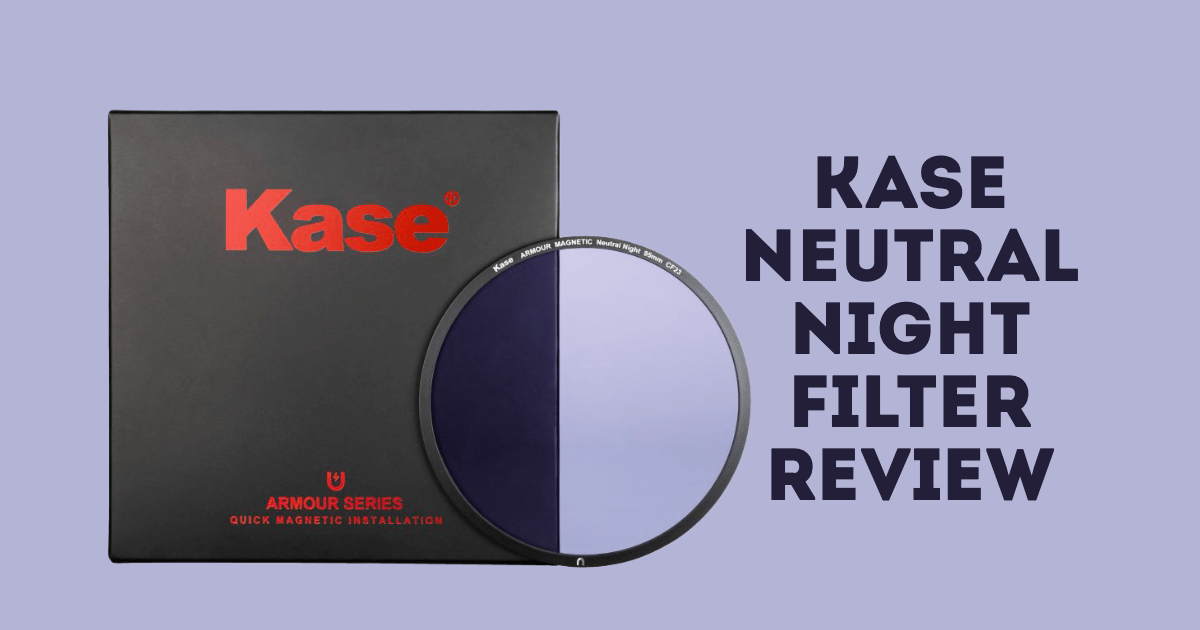December 23, 2022
Kase Neutral Night Filter
Review of the Kase Neutral Night Filter, which helps to remove the effects of yellow sodium lights from night photography

Taking photos in a city can get great results. Attendees of my Night Photography workshop will attest to the great shots we get walking around Edinburgh for a few hours. However, street lights can be quite challenging, particularly the old-style yellow sodium style. That’s where the Neutral Night Filter from Kase can come in handy.
What does it do?
One of the things I love about Kase filters is that they don’t apply any colour cast to the scene being shot. The Neutral Night Filter, though, works by blocking out some of the light from the yellow part of the spectrum. It also appears to enhance the blue light slightly as well. We can see this in the two histograms below. The histogram on the left is taken without the Neutral Night Filter attached, and you can see a large spike of yellow toward the highlights end. When the filter is attached, the spike moves to the left and the blue spike moves slightly to the right.
What does that mean for your photos?
The difference in your images will be pretty slight. Where you will see the most significant change is the size of the glow around a light. In the two detail photographs below, you can see that the size of the yellow element reduces when the filter is attached. However, the starburst, which looks great in night photography, isn’t changed. That means you’ll see much more of the burst and less of the glow when you take photos at night.
How about stars?
You probably think a Neutral Night filter will help your star photography. It kind of will and it kind of won’t. Remember, the filter reduces the impact on specific colours, particularly those emitted by old-fashioned street lights. Some of the stars in the sky also emit colours in that part of the spectrum. The effect on your star photographs will be that some stars are enhanced and will stand out more. However, some of the stars visible in the sky without the filter will disappear, or at least appear less bright, when it’s added. The upside is that the light pollution in the filterless photo disappears with the filter added. You can see this in the two photos below – the left image is without the filter and the right with.
Something to be aware of
When I was testing out the Neutral Night Filter for the first time, I was shooting a scene first without the filter and then with, in close succession. It became apparent that the filter reduces the exposure by 1/3rd of a stop. This isn’t unusual. When using a Circular Polarising Filter, we usually see about one stop less light. However, in night photography, our exposures are going to be relatively long; with the filter, they may be slightly longer.
What does it cost?
If you’re interested in buying a Kase Neutral Night filter, they are available in various formats. The cheapest at £68 is designed for Canon R5 and R6 users and allows the filters to be clipped in front of the sensor. I have reviewed the filter made for the Armour filter system at £130, and they range all the way to £203 for a 150mm slide-in filter. All the options are listed on my Kase page.
I like to be honest about my relationship with reviews. I receive a small commission if you click the link above and then go on to buy. However, I don’t receive free filters – I bought the Neutral Night filter because I use and trust Kase Filters.
Please give us your feedback.
If you’ve got any questions or comments, leave them below. You can sign up for the Edinburgh Photography Workshop monthly newsletter, where you’ll get regular updates on exciting things happening in photography and some great tips. Sign up by clicking here.
About the author
As well as running Edinburgh Photography Workshop, Rich Dyson is a professional photographer. His photographs are regularly used in newspapers such as The Times, Guardian and Daily Telegraph. He also had two solo exhibitions and was featured in a members-sponsored exhibition in the Scottish Parliament. You can see and buy his photography at richdysonphotography.com.